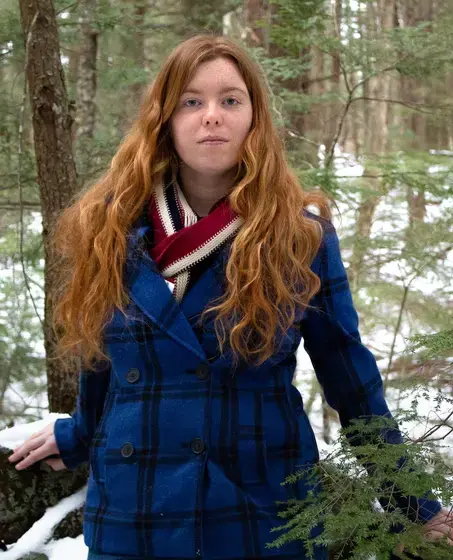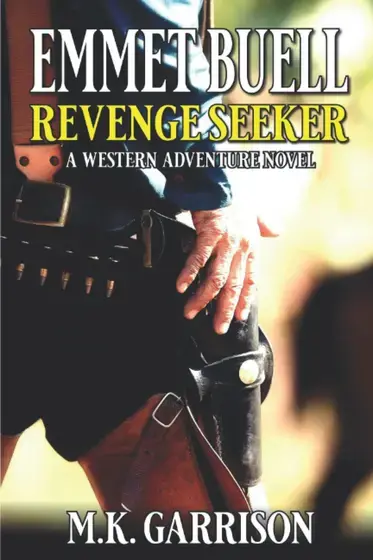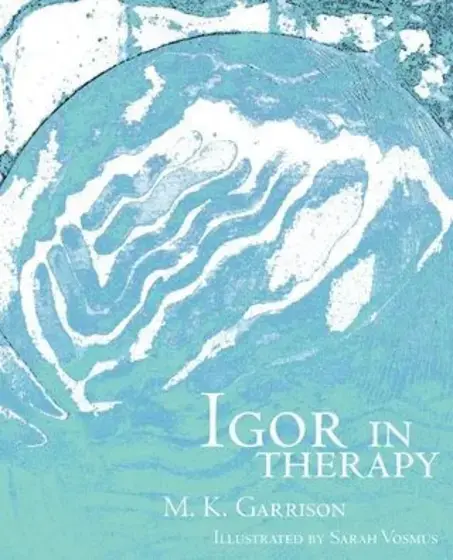Wild Wild Western
A First Year's First Publishing Contract
By Mary Brothers '22
When Myah Garrison ’25 decided to do a creative writing project for an independent study during her gap year before attending Bennington, she was not expecting to fall in love with Westerns—and she certainly was not expecting to be published.
“I began what was initially going to be a collection of five short stories of different genres—Sci-Fi, Western, Romance, etc—but I didn't get very far. I got hooked on the Western one, and I just couldn’t stop writing,” said Garrison.
After speaking with her advisor, Zeke Bernstein, she decided to focus solely on the Western story and turn it into a novel.
“I'd never written or read a Western before,” said Garrison. “My advisor at the time said, ‘You know, that's very in the spirit of Bennington. Go do it.’”
Part of what attracted Garrison to the genre was its newfound focus on inclusivity and diversity.
“Writers are moving away from the very testosterone-filled, white, heterosexual Western,” said Garrison. “By becoming more inclusive, they're actually becoming more historically accurate. A huge percentage of cowboys were people of color. The western states were the first states to allow women to vote. And a lot of the quintessential heroes were gay.”
While writing her novel, Garrison researched Western printing presses until she found one she really liked.
“I thought, ‘Alright, I'm going to write this to their specifications, with their audience in mind, plus with these new ideals of Western revolution, and then I'm going to send it to them at the end of this independent study, and that'll be my project,’” said Garrison.
The finished novel, Emmet Buell: Revenge Seeker: A Western Adventure Novel, was intentionally “the pulpiest Western novel” Garrison could have written, featuring a cowboy protagonist with a disability.
Garrison was thrilled to hear back from the press only one day after she sent off her manuscript.
“I wasn't expecting to hear anything back [from the press] because, on their website, it says you should expect to wait several weeks, and if you don't hear anything by then, you can assume you aren’t being published,” said Garrison. “But the next day, I woke up to an email saying ‘We'd like to interview you.’ I had to get up and power walk around the campus!”



But, like any good pulp fiction novel, there was a twist.
“I got on the call and they're like, ‘Oh, yeah, we want to publish it.’ And then they said, ‘Okay, we want to start with a five book contract, if that's okay with you,’” said Garrison.
To make matters even more exciting, the Western wasn’t the only book that Garrison had in the publishing works at that time.
While a senior in high school, Garrison began working on what would become Igor in Therapy, her first published work, an epic poem about Frankenstein’s assistant Igor.
“It's his story told through therapy sessions,” said Garrison. “It goes back and forth between him and his therapist, because I figured he would need some mental help.”
When Garrison turned in the poem to her teacher, she got something even better than an A+.
“When I finished it and turned it in, she said, ‘I work for a press, and I'd like to publish it.’ And I said, ‘Of course,’” said Garrison. “I was very naive. I thought, ‘Oh, so I'll send it out into the world now, and it'll be published.’ No. There was a year of editing. We spent about four hours on each word, just going over them. It was the most intense editing process of my life, but it was a lot of fun.”
The editing and publishing process of Emmet Buell was completely different, mainly because it was a lot quicker.
“The two books [Emmet Buell and Igor in Therapy] were published within seven days of each other. I was running around like a chicken with my head cut off. One book I'd started more than two years earlier, and one book I'd started less than a year earlier,” said Garrison. “It was two very different experiences.”
Growing up, Garrison did not always want to become a writer.
“Up until the summer between fourth and fifth grade, I hated writing and reading and literature with a fiery passion,” said Garrison. “I'm severely dyslexic, so I couldn't read. I really hated that part of school. Then in the summer between fourth and fifth grade, I went to a writing camp at The Telling Room, which is a program in Maine. Within two hours of getting there, I decided that I was going to be an author. From that point onward, it's been my main focus.”
As a dyslexic author, Garrison has had to overcome more than just writer’s block.
“The big thing is I can't really be independent as a writer because spell check doesn't cut it. But most presses aren't going to accept writing that just says: I'm dyslexic, please edit. So I have to find someone else to help proofread,” said Garrison.
Having dyslexia has also directly influenced Garrison’s love for long-form poetry.
“I went through a big ol’ English Shakespearean phase because those works are so easy to memorize, which is a common thing for people with dyslexia,” said Garrison. “It's such a joy to memorize because then you have the words; you don't have to think about it, and you can rehearse in your head. That’s definitely influenced me more towards the classics.”
Garrison was encouraged to apply to Bennington by the same teacher who encouraged her to publish her poems.
“I was looking at a couple different schools that had really good writing programs. They were all great, but most of them had a specific type of writer that they were turning out,” said Garrison. “Bennington was the only college that seemed to not have a specific type of writer they were turning out. They just had a really wide breadth, and I love to experiment in different genres and styles.”
And what would Garrison say to other young writers looking for printing presses to accept their writing?
“There are so many. If you're willing to write enjoyable, conceivable, or pulpy stuff, the markets are huge. If you're willing to submit that and maybe be rejected a couple of times—I promise you there are people getting published who write worse than you,” said Garrison.
And as for the next four books in her Western series? Don’t worry—Garrison’s got plenty of ideas.
”The next book is going to deal with a poker tournament,” said Garrison. “I really want to stick to the classic storylines with modern sensibilities. The charm of a Western is that it's predictable. The explosions, the big hats, the duels. The first book was a story of revenge and the second will be a poker tournament with the big bad rich guy who's sort of smarmy. It's those classic elements that really drew me to the genre, so I want to stick to that.”
Garrison believes in the importance of playful writing‚—and she’s not much interested in the idea of “selling out.”
“I've never understood what's bad about writing stuff that people enjoy,” said Garrison. “I want to make people happy and it makes me happy to write fun explosions and adventures. And yes, I want good morals and lessons to be in my book, but that doesn't have to be the only thing it’s about.”